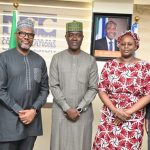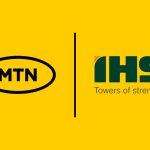Top Authors
Popular Posts
ATCON Leadership Visits NCC, Strengthens Collaboration on QoS and Underserved Areas
NCC Calls for Stakeholder Input on Review of National Telecommunications Policy 2000
MTN’s $6.2bn IHS Deal Faces Federal Government Review Amid Telecom Monopoly Concerns
ATCON Leadership Visits NCC, Strengthens Collaboration on QoS and Underserved Areas
February 18, 2026
The leadership of the Association of Telecom Companies of...
NCC Calls for Stakeholder Input on Review of National Telecommunications Policy 2000
February 18, 2026
The Nigerian Communications Commission (NCC) has invited...
MTN’s $6.2bn IHS Deal Faces Federal Government Review Amid Telecom Monopoly Concerns
February 18, 2026
The Federal Government of Nigeria has announced plans to...
Inside the ₦9.18bn Comeback: How Infrastructure Powered Chams, CWG and eTranzact’s Turnaround
February 17, 2026
In 2020, three of Nigeria’s longest-standing technology firms —...
Nigeria Records Highest Cyber-Attacks in Africa as Weekly Threats Hit 4,701 per Organisation
February 17, 2026
Nigerian organisations recorded the highest number of...
NDPC Investigates Temu Over Alleged Data Protection Violations
February 17, 2026
Nigeria’s data protection regulator has launched a formal...
FG to Introduce Stricter Cybersecurity Rules as AI-Powered Cyberattacks Rise
February 11, 2026
The Federal Government plans to roll out a new cybersecurity...
After 26 Years, NCC Moves to Update Nigeria’s Telecom Policy for Broadband, Satellite and Digital Economy Era
February 11, 2026
The Nigerian Communications Commission (NCC) has commenced a...
CBN, NCC Propose Quarterly Audits of Banks and Telcos Over Failed Airtime & Data Transactions
February 11, 2026
The Central Bank of Nigeria (CBN) and the Nigerian...
NCC Reaffirms Commitment to Regional Digital Integration
February 5, 2026
The Nigerian Communications Commission (NCC) has reaffirmed its...





















